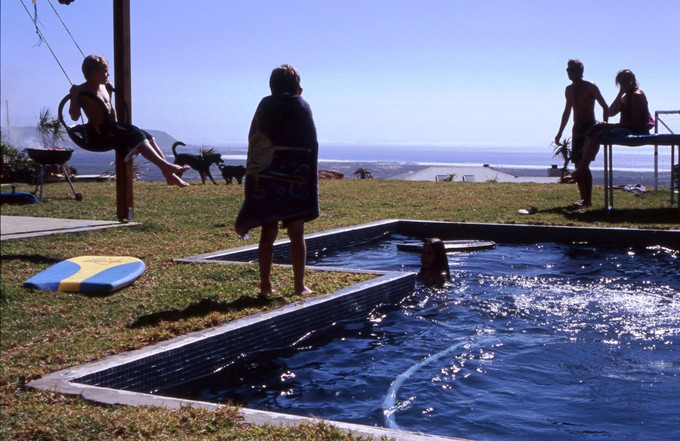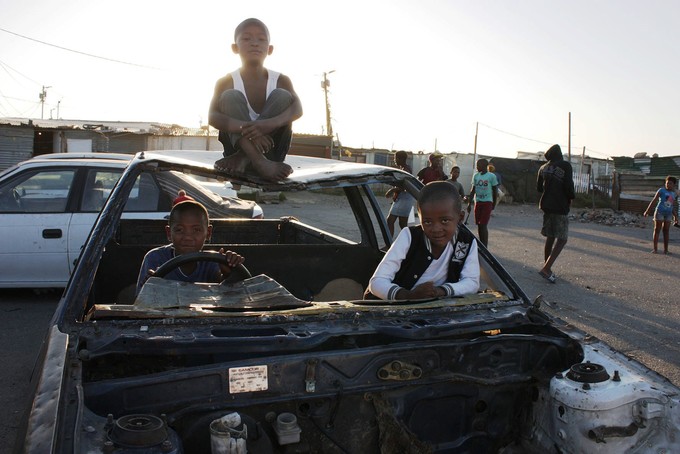
Children play in a stripped car in Masiphumelele in ward 69. Photo by Steve Kretzmann.
1 February 2016
In one of the most picturesque areas of Cape Town, in an arc from Chapmans Peak to Kommetjie that encompasses the pristine white sands of Noordhoek beach, lies Ward 69; a mix of suburban, rural, industrial and township land, with the vineyards and clipped lawns of Noordhoek, the middle class suburbs of Sun Valley and Capri, the surfers’ paradise of Kommetjie, the apartheid planned coloured township of Ocean View, and the expanding township of Masiphumelele. Ward 69 is a microcosm of the Western Cape.
Violent protests in overcrowded and hemmed-in Masiphumelele, as well as a devastating shack fire that left two dead and over 4,000 people homeless on 29 November, put the ward in the news last year.
The rape and murder of 14-year-old Amani Pula on 15 September led to vigilante killings and residents blocking Kommetjie Road – the only direct link to the city for Kommetjie and Ocean View – with burning tyres, a blazing caravan and even, on one occasion, a boat that had been hauled into the road and set alight in protest over a lack of policing.
The fire that swept through the Masiphumelele informal settlement on 29 November put the spotlight on the growing housing problem after years when the only city plan to deal with this block of poverty and desperation seems to be crisis management.
While Masiphumelele, squeezed on the east and west by light industry and on the north and south by wetlands and Kommetjie Road respectively, is caught in the tightening vice of urban migration and resultant population growth, just down the road, fynbos is being cleared for private developments such as Chapmans Bay where the cheapest plots go for R1.65m (that’s before building commences). Residents on this piece of mountainside will have a breathtaking view toward Noordhoek beach, as well as be able to see Masiphumelele shacks glinting in the light of the setting sun.
Meanwhile, drug and gang related murders in Ocean View, situated opposite the tourist attraction which is Imhoff Farm boasting delis selling organic foods way beyond the purchasing power of its immediate neighbours, continue take place on a semi-regular basis.
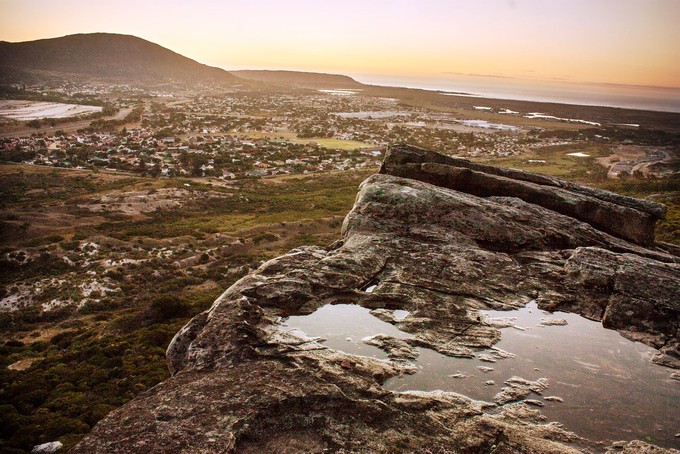
Masiphumelele and Ocean View are undoubtedly the areas that require the city administration’s attention in terms of relieving distress and applying creative, proactive planning and engagement to provide housing, infrastructure and opportunity. But Masiphumelele is an island of ANC support in a DA ward and ward councillor Felicity Purchase [DA] says the residents of Masiphumelele and Ocean View are heavily subsidised by their middle and upper class neighbours. According to her, the issues Masiphumelele residents face, and to a lesser extent Ocean View, take up the vast majority of her time and energy. As they should, given that, according to 2011 census data, 17,081 people were crammed into the little more than one square kilometre which contains Masiphumelele, and 13,569 in Ocean View; the two smallest residential areas making up 82.4% of the ward population in 2011, with the remaining 17.6%, or 6,522 individuals, spread out over the remaining 40-odd square kilometres.
Masicorp, an NGO supporting education and enterprise in Masiphumelele, states the current updated population figure for the township is 38,000 with about 70% of residents having no regular work. There is also an elderly population scattered throughout the traditionally middle class areas in the ward, many of whom are barely surviving on tiny pensions. For the most part, these people’s struggles are almost invisible, but increasingly, elderly people can be seen standing at the traffic lights seeking assistance alongside their Masiphumelele counterparts, many of whom also line the major roads seeking piece work from contractors.
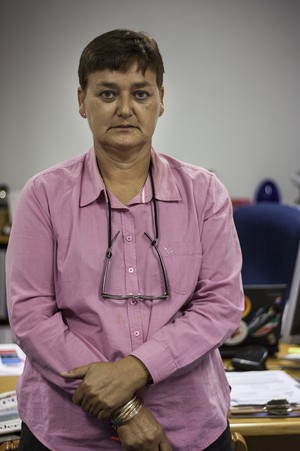
Purchase says she has no political agenda and as councillor, she is there to serve the entire community. This may or may not be true, but there is little doubt that the City of Cape Town has a political agenda, however subtle, and Purchase is subject to control from Council.
It is the disjuncture between the top-down bureaucratic approach of Council and the bottom-up organisational structure of poor communities such as Masiphumelele, where trust between City officials such as Purchase and community leaders creates either a bridge to sustainable solutions or a chasm into which initiatives disappear.
At present, the bridge between City officials and Masiphumelele residents seems to be a rather rickety structure, prone to being washed away in flash floods of frustration and anger, requiring frequent rebuilding.
The City of Cape Town talks a good talk when it comes to transparency and accountability and scandals are infrequent and relatively small in scale. Yet, while the City and its ward representatives might not lie about particular matters, they don’t necessarily reveal the truth either. It appears that instead of open and honest engagement, the City exerts control through a selective release of information.
The City was not completely transparent about the ownership of land to the north and northwest of Masiphumelele, the area adjacent to the existing informal settlement and where natural expansion could conceivably take place (story here). Community leaders in Masiphumelele were led to believe the land was owned by SANParks and was environmentally sensitive wetland. In a bid to negotiate possible use of the land, they met with SANParks officials, only to be told they had sold the land to the City in 2004 for the express purpose of facilitating development for Masiphumelele residents.
Park manager for Table Mountain National Park, Paddy Gordon, stated that the portion of land was made available by SANParks to the City of Cape Town “to accommodate Masiphumelele development pressure which SANParks anticipated”.
Confronted with this, the City’s response, via mayco member for human settlements, Benedicta van Minnen, was that the Masiphumelele Phase 4 housing project consisting of 337 units is to be built on that land. However, the housing project is on only a portion of the land. Approximately 5 hectares of land will remain vacant, while about 250 people who were left homeless following the fire of 29 November, were still having to live in the community hall two months later.
The City’s unspoken fear is that if they let communities know there is land available, it will be invaded, and so it appears they choose to not openly disclose information to communities suffering poverty and a severe lack of housing rather than fostering trust through transparency and joint solutions.
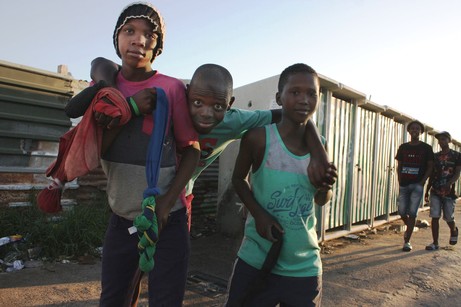
While residents’ concerns differ between Noordhoek and Masiphumelele and Ocean View, one thing other than concern over the economic climate that all have in common, said Purchase, is safety and security.
On the surface, this is true, but safety and security concerns differ according to neighbourhood. The main concern for residents in Sun Valley, Capri, Fish Hoek, Kommetjie and Noordhoek is house robbery. For residents in Ocean View and Masiphumelele, burglary is a concern, but of greater concern is murder, rape and assault with the intent to do grievous bodily harm.
The latest police statistics for the Fish Hoek precinct, which includes Noordhoek and Sun Valley but excludes Masiphumelele, Ocean View and Kommetjie, reveal no murders for the 2015 period but in the Ocean View precinct, which includes Masiphumelele, Ocean View and Kommetjie, 26 murders were reported over the same period.
For sexual offences, nine were reported in Fish Hoek and 40 in Ocean View. There were 14 incidents of assault with the intent to do grievous bodily harm in Fish Hoek as compared to 275 reported at Ocean View.
For burglary at residential premises, however, 352 – or one a day – were reported in the more affluent Fish Hoek precinct and 240 reported in Ocean View.
Similarly, there were more motor vehicle and motorcycle thefts in Fish Hoek – 97 – as opposed to 34 in Ocean View.
The relatively wealthy may fear losing their belongings but the poor fear losing their lives.
In December last year, Ocean View was rocked by seven murders. In one incident, three members of the same family – Chantelle Engelbrecht (29) and her parents, Henry Patterson (60) and Mari Engelbrecht (50) – were gunned down in their home on 12 December. The previous day, Shawn Gregory (26) was stabbed to death, and on 5 December newly-weds Leonardo and Shannon Fortune and their friend Kim Roberts were shot allegedly by gangsters.
In Masiphumelele, where there has been ongoing calls for improved policing, with hundreds of residents having marched to the Ocean View police station in August to demand better crime prevention in the township, anger boiled over following the rape and murder of Amani Pula on 15 September and the killing and burning of a man vigilantes suspected of raping a 24-year-old woman. The anger erupted in the form of vigilante action, leaving at least seven people dead in a matter of days, with residents saying the lack of policing was forcing them to take the law into their own hands.
Protests during October and November, which saw residents blocking Kommetjie Road with burning tyres, a caravan and a boat, resulted in a satellite police station for the township.
Last year’s vigilante action and protests requires a thorough police investigation, says Purchase. “People don’t understand exactly how dysfunctional the police system is. It went downhill for five years, eroding trust and respect, which is very hard to rebuild.”
She said there has been a “remarkable improvement” in policing since Lieutenant Masiza Ponco was appointed to head the police station in August last year, but it would take “at least three years to reach proper levels of trust, respect and engagement”.
She believes certain drug kingpins were behind the vigilante action in September last year, instigating violence against rival drug dealers in order to eliminate competition.
However, as ward councillor, policing is out of her hands, but she maintains gains have been made in re-establishing the Community Policing Forum in Ocean View and the Neighbourhood Watch in Masiphumelele, a function the now disbanded Bambanani security group used to perform, although their methods were often “unconventional”.
Purchase says the upsurge in vigilante violence in Masiphumelele started after the new neighbourhood watches were established, which is why she believes those claiming to be ridding the area of drug dealers may merely be using vigilantism as a front to control turf.
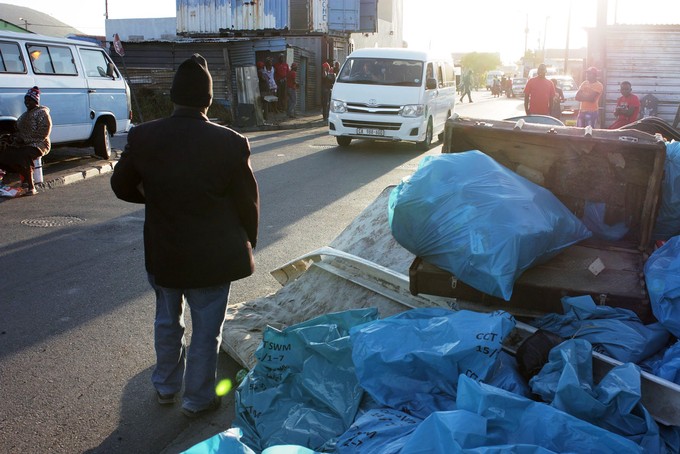
The daily rush hour gridlock on the Kommetjie Road is one of the three worst bottlenecks in the City of Cape Town and is one of the main inhibitors to development between Sun Valley and Kommetjie.
Kommetjie Road, which is the only road out of the area, unless one travels all the way south to Scarborough and then goes over the mountain at Redhill and down to Simonstown, serves Capri, Sunnydale, Masiphumelele, Ocean View and Kommetjie, all of which comprise about 90% of the ward’s residents.
With the only public transport being minibus taxis and an unreliable Golden Arrow bus service, the road is regularly chocked with single occupant cars. There are plans to have MyCiTi feeder buses serving the route, but residents will have to endure the current situation for at least another two years.
Purchase says the council is doing what it can, currently widening Kommetjie Road and they have created additional slip lanes for traffic turning onto Ou Kaapse Weg. A new taxi rank is also being developed for Masiphumelele and all developments are planned around the introduction of the MyCiTi route in terms of bus stops and drop-off points.
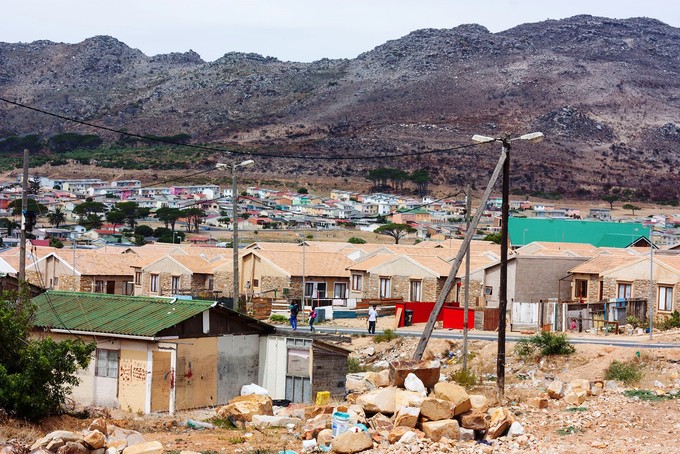
The DA holds Ward 69 by a slim margin, having received 56.66% of the ward vote in the 2011 Local Government Elections, with the ANC having collected 40.21%.The margin in 2006 was even narrower, the DA squeaking it at 48.78% with no outright majority and the ANC hot on their heels with 41.85%.
With the burgeoning Masiphumelele population, which has a history of voting almost exclusively for the ANC, the DA’s retention of the ward depends on Ocean View residents continuing to vote for them and putting their thinking caps on to develop proactive solutions and transparent engagement with Masiphumelele residents if they hope to capture a significant slice of their vote, which is bound to become ever more important if the township continues to expand at its current rate.
The present DA ward councillor is committed and hard working. Having grown up in Fish Hoek, she is familiar with the history and challenges facing this part of the scenic south peninsula. However, she and her party, although committed to good governance, are insufficiently flexible when it comes to dealing with the challenges faced by township residents where middle class solutions have little to no currency.
Integration of the disparate apartheid legacy planning in respect to Ocean View and Masiphumelele needs urgent and creative attention to prevent increasing fragmentation and a widening chasm between rich and poor. The present situation in which Masiphumelele and Ocean View exist as islands of poverty and violent crime is not sustainable.
